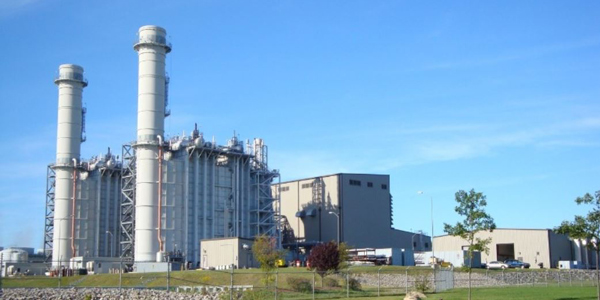By Michael Kuser
FERC last week approved a $115,000 civil penalty against Entergy for failing to promptly inform ISO-NE of the inability of its Rhode Island gas-fired generator to meet its capacity obligations because of pipeline restrictions.
The commission’s July 25 order accepted an agreement between Entergy and the Office of Enforcement assessing the civil penalty and requiring reimbursement of $47,084, plus interest over the 2013 incident (IN18-5).
Entergy’s Rhode Island State Energy Center (RISE), a two-unit combined cycle natural gas plant, was paid $1,459,610 a month for 575 MW of capacity during delivery year 2013/14. (The company sold RISE to the Carlyle Group in 2015 for $490 million.)
Enforcement’s investigation found that, despite becoming aware at approximately 9:30 p.m. on Dec. 26, 2013, that it would be unlikely to meet its capacity commitment for the next day because of pipeline problems, Entergy waited until the following morning to contact the RTO about the issue.
RISE had a contract for firm transportation service with Tennessee Gas Pipeline for up to 45,000 Dth/day, which allowed it to bank in its “operational balancing account” (OBA) gas unneeded on a given day for future use.
On the morning of Dec. 26, Entergy offered RISE into ISO-NE’s day-ahead market. RISE received a commitment for 9,900 MWh. Entergy planned to use about 36,540 Dth from its OBA to meet the capacity obligation, which it determined would require 71,540 Dth of gas to produce.
On Dec. 18, however, TGP had issued a “Critical” notice to shippers saying it anticipated potential disruptions in service and that customers should “match physical flow with scheduled volumes.” On Dec. 26, Tennessee issued another notice, warning of restrictions on gas delivery downstream of its compressor station in Agawam, Mass., including RISE.
Despite low gas delivery pressures, Entergy began operating RISE at 2:45 a.m. on Dec. 27. “RISE not only took gas volumes it had scheduled from Tennessee but attempted to pull additional gas volumes from the pipeline,” according to Enforcement’s settlement agreement with the company.
RISE was able to meet its offer and ramp rate for about an hour, but when pipeline pressures continued to drop, Entergy contacted ISO-NE at 5:31 a.m. to advise that the plant could not meet its obligation. With ISO-NE’s approval, RISE operated at a reduced level of 310 MW for the remainder of the operating day, while the RTO dispatched other generators to fill the gap.
Enforcement concluded Entergy’s violations were the result of a “failure to exercise sufficient diligence” to ensure that RISE was able to meet its dispatch obligations but that it did not intend to violate the RTO’s market rules.
FERC said its penalty also reflected Entergy’s cooperation in the investigation and the steps it has taken to prevent repeat violations.




